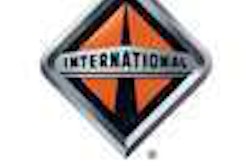Con-way Freight announced that it has opened a new service center in Rockford, Ill., offering next-day delivery throughout Illinois and within a surrounding 600-mile radius. The less-than-truckload company says the new service center at Rockford’s I-39 Logistics Corridor — about one hour west of Chicago — more than doubles the size of its previous operation at 401 Harrison Ave. The company broke ground on the facility in November 2007.
“From the new Rockford service center, our trucks can drive just half a mile and connect with I-39, I-90/94, I-88 and I-80 — interstates heading in every direction,” says M. Gregory Lehmkuhl, executive vice president of operations for Ann Arbor, Mich.-based Con-way Freight. “That kind of quick access is absolutely vital to our mission of providing the best LTL performance, including fast transit times, on-time service and exception-free delivery.”
Con-way Freight says the new service center employs more than 100 area residents, 83 of them driver sales representatives; it features nearly 50,000 square feet of dock space and 110 dock doors for loading and unloading trailers — expanded from 42 dock doors at the previous facility. Staff there will process about 1 million pounds of freight and 900 shipments per day, servicing roughly 700 business accounts in the area, according to the company.
The Rockford facility opening takes place as part of Con-way Freight’s major network re-engineering project aimed at creating a more efficient operation to improve service and reduce costs. While some of the company’s service centers in the area were closed as part of the initiative, newly-opened facilities in Rockford and LaSalle have gained freight service and employees displaced from the closing locations.
Con-way Freight says that under its network re-engineering initiative, the company will reduce the total miles traveled per day by 124,000, or 5.2 percent of the 2.4 million miles its drivers typically run each day; that decrease in mileage will conserve 4.9 million gallons of diesel fuel per year for an annual cost savings of roughly $14 million.










